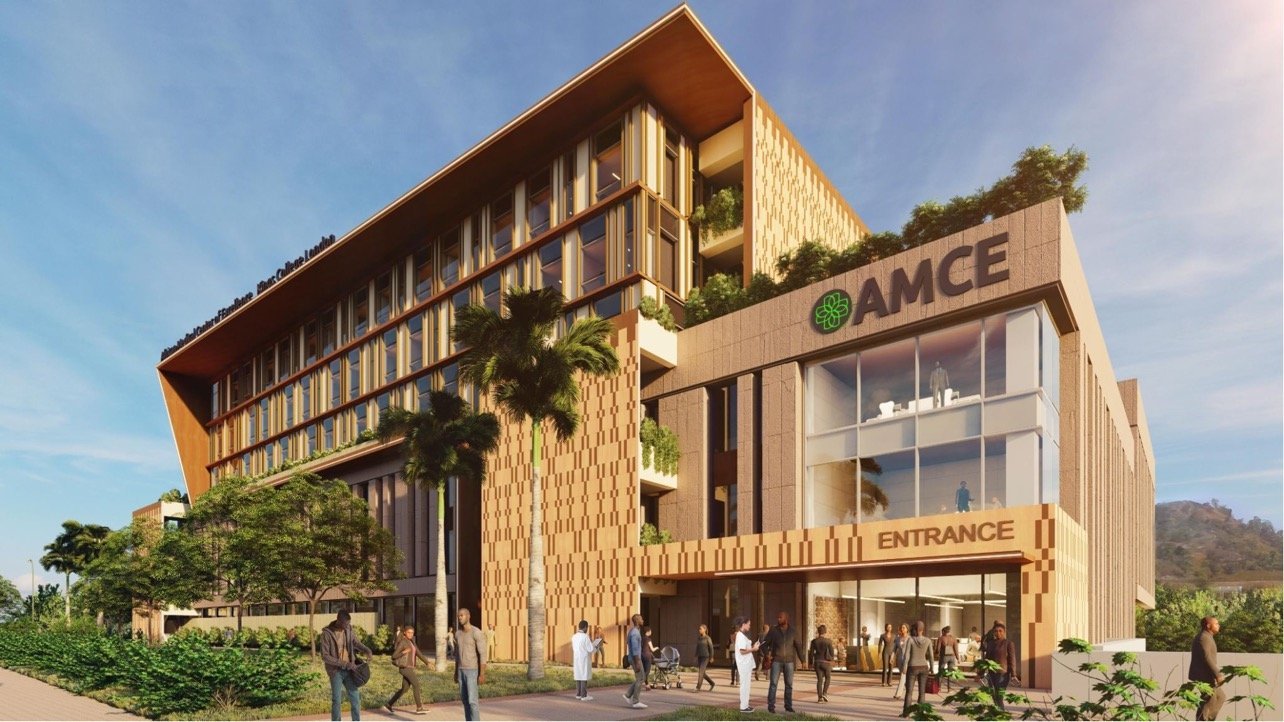Nigeria’s push to revitalise its healthcare sector just got a major boost. The African Export-Import Bank (Afreximbank) and the Bank of Industry (BOI) have signed a $75 million financing agreement aimed at scaling up local production of pharmaceuticals, vaccines, and medical equipment under the Presidential Initiative for Unlocking the Healthcare Value Chain (PVAC).
The deal was sealed during the commissioning of the African Medical Centre of Excellence (AMCE) in Abuja, a high-level event attended by Vice President Kashim Shettima, who stood in for President Bola Tinubu. The project signals the government’s commitment to reducing medical imports and boosting Nigeria’s self-sufficiency in healthcare.
AMCE: Africa’s Vision for Medical Excellence
The newly unveiled AMCE is more than just a hospital — it’s a vision of a future where Africans don’t have to travel abroad for advanced treatment. Afreximbank’s President, Prof. Benedict Oramah, and Nigeria’s Vice President also launched the African Life Sciences Foundation and Endowment Fund at the event. The fund aims to accelerate drug research and interventions that are tailored to African populations.

“We have laid the foundation for African medical specialists who will no longer be exported but empowered,” said Prof. Oramah. The emphasis was clear: Nigeria is trying to reverse the “Japa” trend — brain drain — and inspire a “Japada” movement of skilled professionals returning to practise at home.
Afreximbank also took the opportunity to sign a €100 million trade finance facility for the Development Bank of the Central African States (BDEAC), alongside a venture capital investment in pharmaceutical development. Another standout partnership includes a signed agreement with King’s College London for the creation of a Medical and Nursing School at the AMCE campus in Abuja.
A $400M Vision Backed by Global Collaboration
Nigeria’s Minister of Finance, Wale Edun, described the AMCE as a “world-class” project, with a build cost estimated at $400 million — a sum mobilised through private sector contributions. He believes the facility will improve foreign exchange inflow, reduce medical tourism, and retain skilled medical professionals.
The centre’s CEO, Brian Deaver, echoed this sentiment, promising that patients will experience “a new standard of care defined by excellence.” He extended his appreciation to both Afreximbank and the Federal Government for enabling such a transformative vision.
Clarifying the cost figure, Afreximbank’s Managing Director of Export Development, Ms. Oluranti Doherty, said the $300 million investment mentioned earlier was only for the core AMCE structure. The additional $100 million referenced by Edun includes future expansion plans — such as a research institute, medical office spaces, a hotel for patients’ families, and a dedicated medical and nursing school.
“The AMCE model will eventually be replicated across other African regions,” she added, confirming the project’s pan-African ambition.







2 replies on “Nigeria’s Healthcare Gets $75M Boost from Afreximbank, BOI”
[…] at the 2025 Afreximbank Annual Meetings in Abuja, themed “Building the Future on Decades of Resilience,” Shettima, […]
[…] inspired by listening to Nigerian women and families share their everyday struggles with finding trustworthy healthcare. “Koyo was built for Nigeria, not imported. It’s a local solution backed by global […]